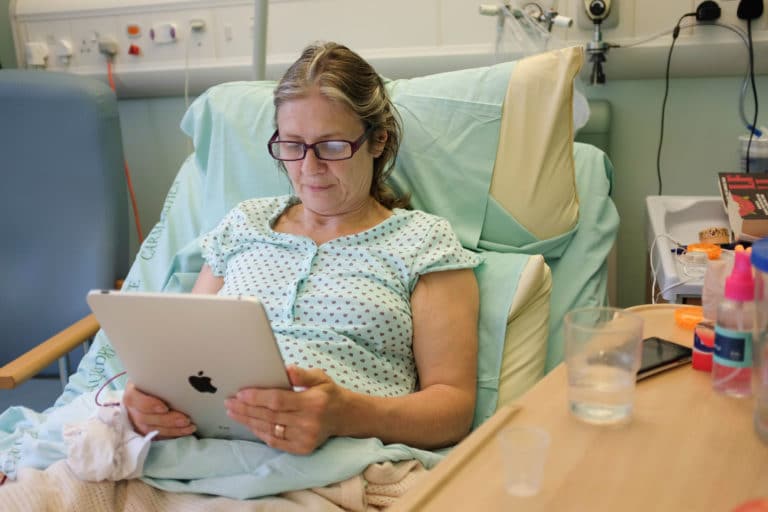
Thinking About Driving After a Stroke?
Depending on the area of the brain affected by the stroke, it can affect individuals in different ways. Stroke survivors may experience changes in their vision, cognitive, or physical abilities.
For some, the changes are subtle and for others, they are more significant. Since driving requires vision, cognitive, and physical skills, returning to driving after a stroke requires careful consideration even for those with subtle changes.
Why is vision so important for driving?
Vision is crucial for driving.
Drivers use their vision to:
- identify hazards on the roadway
- navigate in familiar and unfamiliar environments
- judge gaps at intersections and during lane changes
A stroke may cause a visual field cut. Depending on the area of the field cut, an individual may have difficulty seeing a pedestrian or identifying a turn lane at an intersection.
A stroke can paralyze or weaken the muscles that control eye movements. Consequently, a person driving after a stroke may have trouble with depth perception and scanning, making it more difficult to judge gaps, park, or respond to hazards.
Why are cognitive skills crucial for driving?
Cognitive skills are also crucial for driving. Drivers use their cognitive skills to concentrate on the roadway, make decisions about hazards and other roadway conditions.
After a stroke, it is not uncommon for an individual to experience a slower thinking pace. This is often referred to as decreased processing speed.
A driver needs to process information at speeds of 55 mph or higher in order to respond and react to hazards.
After a stroke, individuals may also experience more difficulty making decisions, solving problems, and sequencing steps.
A driver uses these skills to manage hazards and respond to routine driving situations. In addition, a stroke can cause problems like inattention to a visual field.
Despite the person’s vision being intact, the brain ignores information on one side of the visual field. If driving, one might not identify a vehicle or pedestrian in their peripheral field.
Why do we need good physical skills?
Physical skills are used to maneuver the vehicle and control many other functions such as defrost, wipers and turn signals.
After a stroke, individuals may experience weakness, paralysis, and sensory loss on one side of the body. If the right leg is affected, it may make it difficult to operate the gas and brake pedals.
If the left arm is affected, a driver may have difficulty operating the turn signal or turning the steering wheel.
Always consult with your doctor
Since driving is complex and potentially puts other roadway users at risk, it is important to consult your doctor to determine readiness to return to driving and learn the steps required to get back on the road.
Doctors typically know what the requirements are at the Department of Motor Vehicles or similar agencies. Some states require retesting at the DMV. Your doctor may also refer you to an occupational therapist that specializes in driving rehabilitation.
These health care professionals can assess your readiness to drive. They may test your vision, cognitive, and physical skills for driving. They may also assess your driving skills with a driving simulator or behind the wheel in a dual controlled vehicle.
Most driving rehabilitation programs also offer interventions for individuals that would benefit. These interventions might include adaptive equipment to compensate for physical deficits, or strategies to manage vision and cognitive challenges.
And if you are not ready for driving, they can recommend therapy activities to help prepare you for driving in the future.
About Drive Focus
Drive Focus is a great tool to help you develop hazard awareness and defensive driving skills both for new and experienced drivers.




